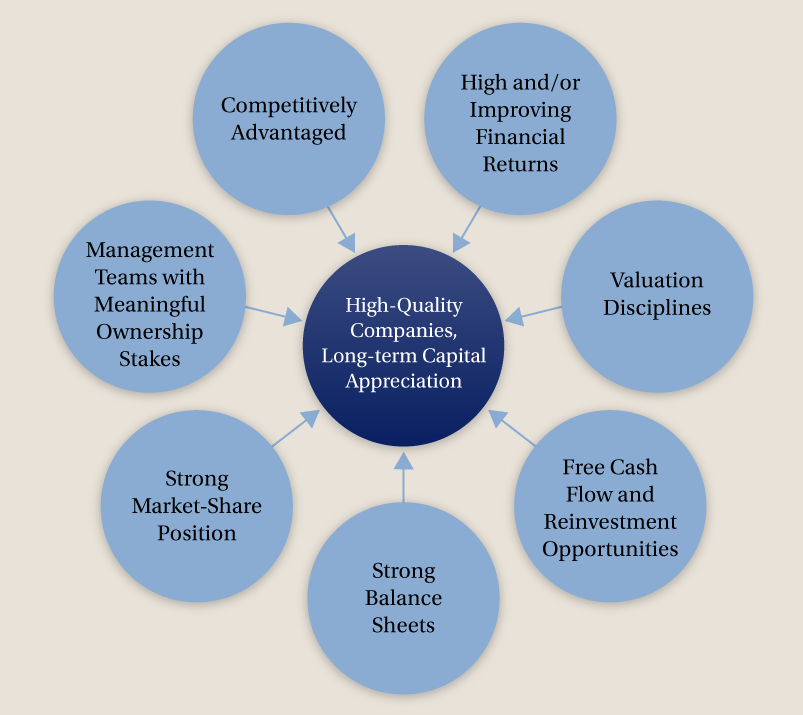What they do
The managers invest in a combination of US blue-chip stocks, investment-grade intermediate-term bonds, convertible securities, and cash. There’s a bit more mid-cap exposure than their peers offer but noticeably less direct international exposure. In general, at least 25% of the portfolio will be bonds. In practice, the fund is generally 70% equities. The portfolio turnover rate is modest, typically 25% or below.
How they’ve done
Over the past decade, the fund has averaged 9.9% annual returns which does about match the stock market’s long-term average of 10% per year. It’s had substantially lower volatility than an all-equity portfolio, and its risk-adjusted returns are comparable.
LKBAX has substantially higher returns, lower volatility, and higher risk-adjusted returns (Sharpe ratio, Sortino ratio, Martin ratio, Ulcer index) than its Growth Allocation peer group. It’s a top 15 fund over the past decade for both total returns and risk-adjusted returns. Its greatest distinction is its consistency; measured by the fund’s MFO Premium “batting average,” it’s a top-five (of 100) fund that outperforms its peers in 63% of all months in the past decade.
The fund has earned a four-star rating from Morningstar, as well as the equivalent of a five-star rating from MFO. They have earned the Great Owl designation for consistently top-tier risk-adjusted returns.
What we liked
From our May 2011 profile: “Quiet discipline, it seems. Portfolio turnover is quite low, in the mid-teens to mid-20s each year. Expenses, at 0.8%, are low, period, and remarkably low for such a small fund. The portfolio is filled with well-run global corporations (U.S. based multinationals) and shorter-duration, investment-grade bonds. This is a singularly fine fund for investors seeking equity exposure without the thrills and chills of a stock fund. The management team has been stable, both in tenure and in discipline. Their objective remains absolutely sensible.”
The advisor’s first quarter 2021 review reflects their sense of changing market leadership. “Capital markets have entered a ‘reflationary’ period which is characterized by accelerating economic growth and rising inflation. When economies are in a reflation regime, there are often significant implications for capital market leadership. In general, reflation is good for commodities and equity values at the expense of bond prices and, in certain circumstances, the U.S. dollar. Equity markets typically tilt in favor of small companies over large, and investors seek shares of companies in the Energy, Financials, Materials, and Industrial sectors because they benefit from rising inflation and/or higher interest rates.”
Then and now, we celebrate a commitment to investing in high-quality corporations (63% of their holdings possess defensive economic moats, per Morningstar, compared to just 43% for their peers), a long-term perspective (turnover remains at 18%), and quiet, consistent performance.
Then and now, from the perspective of mutual fund investors, the folks at LCKM remain among the industry’s poorest communicators. Their website is sparse and rarely updated (the “news” features are 3-8 years old), they don’t write shareholder letters, they don’t speak to the press, and their annual reports offer limited insights. You’re better off visiting the advisor’s main site, though little there helps you understand the fund. As with the Bruce Fund (BRUFX), you’ve got an outstanding fund whose performance must speak for itself.
What’s changed
Not much on the mutual fund side, so far as we can tell. LKCM manages $20 billion, primarily for high net worth investors. They’ve added international and private equity strategies on that side of the house, but the mutual fund remains in “slow and steady” mode.
The administrative stuff
LKCM Balanced has $135 million in assets and an expense ratio of 0.80%. The minimum initial investment is $2,000.
Other funds we’re reviewed in the category
Tributary Balanced (FOBAX, a singularly improbable star whose adviser is owned by the First National of Nebraska that’s also earned the Great Owl designation)














